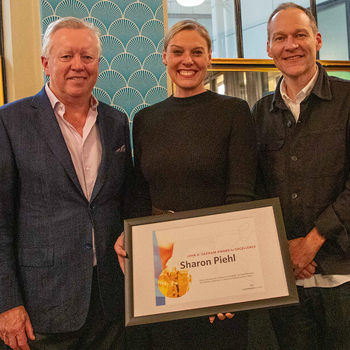Harnessing Young Talent in the ‘Age of Impatience’
There can be no doubt that one of the biggest challenges facing South Africa in the 21st century is the issue of sustained and gainful employment for the youth. Recent statistics reveal that 42 percent of young graduates between the ages of 18 and 29 are currently unemployed. The youth of SA are leaving universities and places of higher learning across the country in droves annually expecting to find gainful employment and begin to build a fulfilling life for themselves.
It is axiomatic that the world has changed and employers need to change with it if they want to provide an attractive work environment for skilled youth who have the drive and dedication to succeed. We live in an impatient or “quick fix” society and this is never truer than when it concerns the youth who are often impatient and ‘fickle,’ expecting quick results whether it is getting a message on Twitter or Mxit or ordering a product online.
In my opinion this impatience rather than being combated or restricted by companies needs to be embraced and channeled.
Employment Triggers
The prized criterion that a prospective employee holds vital for fulfilling employment has radically changed over the years morphing into employment ‘triggers’ that are critical to the youth of today.
For example these include the importance to young people of the quality of the technology around them and access to social media. This generation thrives online and companies needs to allow them access to online media which in turn and if harnessed correctly can lead to systemic and communication improvements within the company they work for.
The advent of cloud computing means technology exists that is conducive and in many cases drives this mental shift existing in the ‘age of impatience.’ Companies need to take the long term view and rather than censoring or restricting internet access they need to encourage people to be online.
Digital media is becoming more relevant each day and cannot be underestimated, witness how Facebook was used to organise the resistance and protest action that eventually overthrew the corrupt old regime in Egypt. Social media cannot be ignored and exists as a powerful force in modern society. At FH for example our Digital media department far from being an ‘add-on’ is now a vital and central part of any of our client’s communication strategy.
Young people of today are notoriously fickle in their buying behavior for example and ‘flit’ between different brands. This extends to employment where they can often have between more than 5 -10 jobs in their lifetimes. Consequently there is a greater onus on companies to become ‘workplaces of choice’ and create rewarding career paths.
Trends are undoubtedly changing, especially in the marketing sector for example where we have a generation of people who don’t adhere to or even care for traditional media. They prefer to extract their information from an often more immediate and responsive social media, this of course includes blogging and ‘citizen journalism.’
Another big skill retention factor for the youth are flexible working hours which often become key in creating an overall better quality of life by avoiding the morning ‘mass commute’ for example. Of course this trend also need to be judiciously applied and also earned as young people especially require a structured environment in order to achieve excellence.
Technology as a Differentiator
Many misconceptions exist around the mental posture and attitude of young people today for many companies. In my experience most of the young people we employ at Fleishman Hillard for example have been to university, still live with their parents and are hard workers if given the right mentoring and guidance. They usually have a far more mature and informed ‘worldview’ than they are given credit for.
Coming off the back of a global recession and with companies’ often cutting staff complements, young people have to fight for positions as never before. Technology is one of the tools they are using to ‘stand out’ from the pack and differentiate themselves when applying for positions.
As candidates find themselves fighting harder to acquire their first jobs they often send innovative video clips or visual curriculum vitae to illustrate their personalities and skill sets. I recently interviewed someone who gave me an informative and entertaining PowerPoint presentation with themselves as the subject, highlighting their talents and potential ‘value adds’ to our company.
Of course with the gap between our personal and professional personas blurring it is vital that youth realise the impact of the online image they are portraying of themselves. Prospective employers, myself included, often peruse their digital biographies online before interviewing them. This increasing transparency is indeed laudable yet at the same time discretion needs to be exercised by the youth when online, especially when dealing with or referring to confidential company information on the Web for example.
Local companies need to give back if they want to reap the long term benefits of a talented and motivated workforce to take them into the future. This could be achieved by sharing their knowledge through mentoring, training programmes and workshops.
Companies need to market themselves to the youth to create an environment that retains and nurtures talent. Of course certain qualities never go out of fashion and we are attracted to candidates who are articulate, tech literate and have a strong eye for detail.
At the end of the day our mission is to educate our youth to ‘earn’ the respect that they think they are ‘entitled to’ starting from the very first day of their employment and transforming their Age of Impatience into an Age of Heightened Productivity.
Find Out More
-
Mandela Day 2025 - Leaving a Mark That Matters
July 23, 2025
-
Digital Insights Bulletin - October 2024
October 31, 2024
-
Sharon Piehl Wins 32nd Annual John D. Graham Award for Excellence
October 25, 2024


